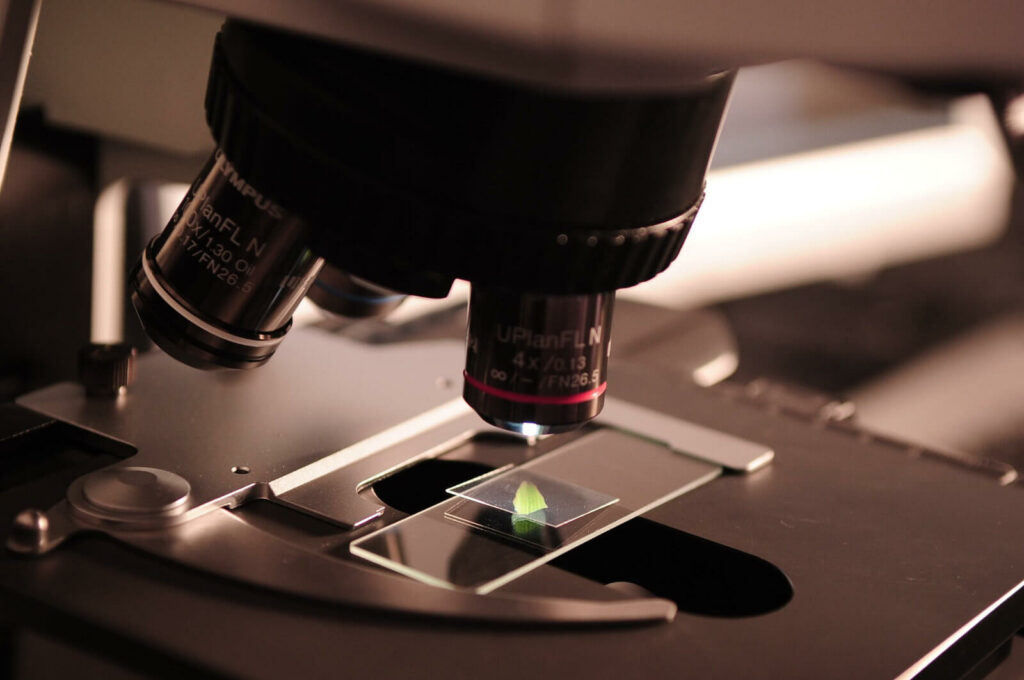Lifestyle Changes for Preventing Hair Loss
Hair loss can be caused by more than just genetics and hormones. In this article, we will explore lifestyle changes that can help prevent hair loss, such as reducing stress, getting enough sleep, and maintaining a healthy diet. We will also discuss the importance of maintaining good scalp health and avoiding heat damage and chemical treatments.
- Causes of Hair Loss
- Lifestyle Changes to Prevent Hair Loss
- FAQ about Preventing Hair Loss
- What lifestyle changes should I make to prevent hair loss?
- Are there any foods I should include in my diet to help prevent hair loss?
- Are there things I should stop doing that can cause hair loss?
- What other factors play a role in preventing hair loss?
- Does excess stress or emotional trauma lead to hair loss?
- Is exercise important for preventing hair loss?
- Could scalp massage help with hair loss prevention?
- Are there any over-the-counter medications or treatments that can help with prevention?
- What long-term lifestyle changes should I make for maximum hair loss prevention?
- Conclusion
Causes of Hair Loss
Hair loss can be a distressing experience, yet there are steps you can take to help prevent it. By making certain lifestyle changes, such as eating a balanced diet, managing stress levels, and exercising regularly, you can help ensure your mane stays full, healthy, and lush. In this article, we explore the causes of hair loss and the lifestyle changes you can make to help keep your hair healthy and looking its best. Learn the benefits of supplements, like biotin and saw palmetto, and discover how to protect your hair from environmental damage. Make these simple changes to your daily routine and take charge of your hair health today.
Genetics
Genetics are typically the biggest cause of hair loss, but lifestyle changes can help reduce the likelihood of it. Stress, in particular, can trigger hair loss, whether it be physical, mental, or emotional. To manage this, seek advice from a mental health professional or life coach. Practicing healthy lifestyle habits, such as meditating and exercising, can also help to reduce chronic stress.
A balanced diet is essential for healthy hair, so it is important to avoid processed and fried foods, and to fill your plate with plenty of fruits, vegetables, and proteins instead. Taking a multivitamin or biotin supplement can help to ensure you’re getting all the essential nutrients to prevent hair loss due to nutrient deficiency. Additionally, make sure you’re getting enough quality rest each night so your body has time to heal and recover from the day’s stressors.

Finally, taking care of one’s hair can significantly reduce the chances of hair loss. To achieve this, it is essential to avoid over-styling the hair and using products that dry the scalp, such as hair straighteners and curling irons. Additionally, chemical treatments such as bleaching and coloring should be avoided as they can increase the risk of hair loss. Regular trimmings can also help keep the hair healthy, whilst avoiding tight hairstyles such as cornrows and ponytails can further reduce chances of hair loss.
To sum up, whilst genetics is a significant factor in determining the likelihood of hair loss, lifestyle changes can help reduce the risk. It is therefore important to note that reducing stress, eating a balanced diet, and taking proper care of the hair are essential steps to prevent hair loss.
Hormones
Hormones are the major contributors to hair loss in men and women. Androgens are hormones that are responsible for various processes in the body, such as hair growth and hair loss. This implies that making lifestyle changes could be beneficial for avoiding hair loss.
The best way to effectively monitor hormone levels is to observe a balanced and healthy diet. Include a wide range of healthy ingredients in your meals, like fruits and vegetables, whole grains, and lean proteins, to sustain healthy hormone production and reduce the odds of hair loss. Also, keep away from processed foods and sugary snacks that can cause hormonal highs that can lead to balding.
In addition to a nutritious diet, physical activity is important for maintaining hormonal balance. Exercise increases blood circulation, delivering necessary nutrients and oxygen to the follicles. Similarly, regular exercise can lower stress levels, which can sometimes lead to varying hormone concentrations.
It is essential to acquire enough hours of sleep each night as well. Sleep is often disregarded in preventing hair loss but it helps in hormone regulation. Strive to get a minimum of seven hours of good quality sleep per night to ensure that hormone levels don’t go out of control.
Not Enough Nutrients
When it comes to the causes of hair loss, nutrient deficiencies can play a major role. People often confuse hair loss with genetics, yet deficiencies in essential vitamins and minerals are often a primary cause. The American Academy of Dermatology reveals that receiving sufficient amounts of key nutrients is essential for healthy hair growth and development.
A balanced diet is the best way to find the right balance of nutrients, with a variety of healthy food items like fruits, vegetables, lean proteins, and whole grains, providing your body the vitamins and minerals it needs to maintain healthy hair. Furthermore, it is important to ensure your body receives adequate amounts of B vitamins, vitamin E, iron, and biotin to protect against hair loss.
If your diet does not provide enough of these essential vitamins and minerals, then a nutritional supplement should be considered. Before taking any supplement, it is always encouraged to speak with your doctor to know if the supplement is suitable for your situation. Moreover, make sure the supplement includes the vitamins and minerals your body needs to resist hair loss.
Stress
Stress is an element of consideration when seeking to forestall hair loss. Hair cells are the most delicate cells in the body, making them vulnerable to the impact of stress. For some people, stress-induced hair loss can take several forms.

For instance, acute stress unleashes high amounts of cortisol – a hormone that can cause melanin production to decrease, leading to premature greying. Excessive and/or prolonged stress may significantly amplify this outcome.
Moreover, blood deprived of sufficient circulation to the scalp reduces the nourishment of hair follicles, causing hair growth to slow, shedding to increase, and healthy new locks to be stymied.
Finally, intense stress prompts the release of inflammatory chemicals which can directly damage hair follicles and precipitate hair loss. This is especially true in cases of long-standing distress.
Lifestyle Changes to Prevent Hair Loss
When it comes to hair loss, understanding the causes and taking preventative measures is key. You might be surprised to learn that lifestyle choices such as stress, poor nutrition, vitamin deficiency, hormonal imbalances and smoking can all contribute to hair loss. Taking control of your lifestyle can help prevent the effects of hair loss.
Start by improving your diet and exercising regularly to ensure your body receives the right nutrition and has enough energy to stay healthy. Make sure you are getting adequate amounts of sleep, drinking plenty of water and, most importantly, avoiding smoking. Supplementing your diet with vitamins and minerals, as well as reducing stress, can also help prevent hair loss. If you think that your hair loss is due to an underlying condition, it’s important to speak to a doctor for their perspectives and advice.

A Balanced Diet
Maintaining a healthy lifestyle is essential for strong and healthy hair. A well-balanced diet, full of essential nutrients such as protein, iron, zinc, and Vitamin C, should be adhered to on a daily basis in order to get the most out of your hair. Protein sources such as fish, eggs, and beans help ensure that hair receives the nutrients it needs in order to grow. Iron helps promote hair growth and can be found in red meat, poultry, and fish. Zinc helps to maintain hair follicles and is found in nuts, legumes, and dairy products. Vitamin C helps to promote healthy hair growth and can be found in citrus fruits like oranges, lemons, and kiwi.
Staying hydrated is also important for healthy hair. It is recommended to drink at least eight 8-ounce glasses of water to stay hydrated and to prevent dry and brittle strands. Alcoholic beverages can contribute to hair loss, so avoidance of or limiting this beverage is also advised. Caffeine should also be consumed in moderation as excess amounts can lead to increased shedding.
Overall, the key to healthy hair is proper nutrition and adequate hydration. Living a healthy lifestyle helps ensure that your hair receives all the necessary vitamins and minerals for healthy growth and maintenance. Eating a balanced diet complemented by lots of water is the perfect way to keep your hair looking luscious and vibrant.
Manage Stress Levels
Stress is one of the most common culprits behind hair loss. But, there is good news! Controlling and reducing the amount of stress in your life can be a powerful way to protect your hair. In our chaotic world, keeping stress levels in check can be hard, but is essential. Incorporating restorative activities into your routine is key. Here are a few ideas to help reduce stress and protect your hair:

- Establish a routine: Develop fixed habits that help with managing stress. A daily routine gives structure to your life and provides a sense of control. Set a bedtime and wakeup schedule, incorporate regular physical activity, and plan meals ahead of time.
- Exercise regularly: Exercise can be an effective way to manage stress. Regular physical activity can reduce tension and help you process stress better. Even 15 minutes of exercise can help reduce stress and improve health.
- Eat a healthy diet: Unhealthy eating habits can increase stress. Aim for a balanced diet with fresh fruits and veggies, and low in processed foods, saturated fat, and sugar.
- Take time for self care: Make time for relaxation activities throughout the day. Have a warm bath, read a book, or do yoga or meditation to help reduce stress levels.
- Connect with a mental health professional: Talk to someone if you’re having trouble managing your stress. Professionals can provide tools and strategies to manage your stress and improve overall mental health.
By incorporating these tips into your daily routine, you can better manage stress levels and reduce the risk of further hair loss.
Regular Exercise
Regular exercise is an integral part of any lifestyle changes meant to prevent hair loss. Research has shown that exercise not only helps you stay in shape but also improves circulation and lowers stress levels, both of which are key to promoting healthy hair growth. In addition, exercise helps reduce levels of stress hormones, which have been linked to hair loss.
The type and intensity of exercise should depend on your current fitness level, time constraints and personal preferences, but experts suggest getting at least thirty minutes of moderate intensity exercise daily. If you can, seek out activities that you enjoy, such as running, swimming, cycling, aerobics or playing a sport. To benefit your hair health, it is essential that you don’t overexert yourself as lots of exercise over a prolonged period could cause exhaustion and, in extreme cases, result in hair loss.
For those interested in resistance training, weightlifting can help keep your hair healthy. Take care to ensure that your workouts are balanced between rest, strength work and cardiovascular exercises for the best results. No matter what mode of exercise you opt for, integrating it into your routine is a great way to add healthy lifestyle habits and protect your hair from thinning.
Quit Smoking and Limit Alcohol Intake
Smoking and drinking alcohol are two lifestyle habits that can lead to hair loss. Both smoking and excessive alcohol consumption can contribute to the weakening of hair follicles and the appearance of hair loss.

Smoking cigarettes has been linked to an increased risk of developing various forms of hair loss, including androgenetic alopecia (male-pattern baldness) and alopecia areata. Studies have found that people who smoke tend to experience premature hair loss, which is hair loss that occurs before the age of 40. Smoking may accelerate male-pattern baldness by increasing the production of dihydrotestosterone, a male hormone that is responsible for many forms of hair loss.
Excessive alcohol consumption can also contribute to hair loss. Heavy consumption of alcohol has been linked to an increased risk of developing both temporary and permanent forms of hair loss. Alcohol can have a damaging effect on the health of the hair follicles and can disrupt the hair growth cycle.
Therefore, quitting smoking and limiting the consumption of alcohol are two important lifestyle changes to help prevent hair loss. Quitting smoking can help to reduce the risk of developing premature hair loss, while limiting the consumption of alcohol can help to improve the condition of the hair follicles and promote healthy hair growth. It is important to note that these lifestyle changes may not reverse existing hair loss, but they can help to prevent further hair loss from occurring.
Overall, quitting smoking and limiting alcohol intake are two lifestyle changes that can help to reduce the risk of developing hair loss from these two sources. This can be beneficial for those who are looking to maintain the health of their hair and prevent further hair loss from occurring.
FAQ about Preventing Hair Loss
Conclusion
In conclusion, genetics and hormones can be difficult to control, though making healthy lifestyle decisions can assist greatly in preventing hair loss. Eating a healthy diet with nutritious foods, managing your stress levels, getting regular exercise, quitting smoking, and minimizing your alcohol intake, can all help in ensuring healthier hair.
Create healthy habits that you can easily incorporate into your daily routine and you will witness a marked improvement in your hair health. Everyone’s hair loss is unique, so talking to a doctor or physician is important to come up with the most effective treatment plan for yourself. Combining the correct lifestyle changes can lead to a beautiful head of hair and a healthier life.
